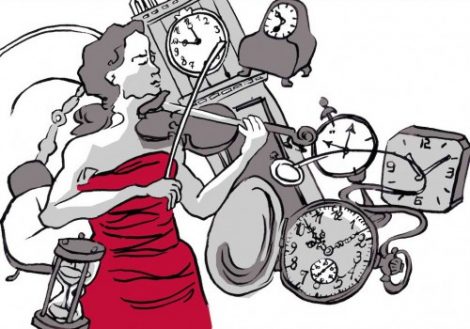Practice makes (not always) perfect

Everybody reminds his childhood or today’s educational mission: exhortations by parents to practice the musical instrument more consequently, exhortations by trainer to run or swim three more rounds, or practicing the difficult exercises regarding curve sketching to reach a higher level of performance at next math-audit.
Since 19th century experts discuss if you will born as an expert or you will become to an expert by collecting experience and hard practice. 20 years ago it seems like a study improved that you reach individual performance by hard practices. Exercises were categorized as structured activities, which increase your performance. Result of the study conducted by Anders Ericsson at Berlin University of applied arts shows that the 1st group (“the best”) in playing violin perceived in average 7.410 hours of practice, 2nd group perceived in average 5.301 hours of practice and the comparison group of future music teacher only practiced 3.420 hours in average.
Such results are very suitable for popular science. Malcom Gladwell created his “10.000 hour rule” in his book Outliers in 2008. His claim: practice 10.000 hours and you will become an expert (which means 5 years in case of a 40-hour-week). But so everybody could become an expert.
If my parents had been stronger in past I would have been a star pianist.
But is it empirically proven that more practice results higher performance? Does it adapt to all disciplines of music, games, sports, school, and business life? Brook N. Macnamara et. al. from the department of psychology of Princeton university researched in form of a meta analysis, if the correlation between practice and performance is empirically provable. Regarding this meta analysis they evaluate 88 studies including 11.135 participants.
The reassuring statement from the results of meta analysis: mostly all found correlations between practice and performance are positive.
But: with respect to all different disciplines only 12% of performance differences are explainable with a difference of practice duration. Opposite: 88% of performance differences does not base on differences in practice durations.
A more detailed view on different disciplines offers huge difference: At least 26% of variance of performance differences are explainable with respect to practice in category of games (e.g. chess or scrabble), 21% in music (e.g. piano or violin) and 18% in sport (e.g. football).
But a significant lower correlation exists in category of education (school or studies): only 4% of variance, even 1% in professions – in this two categories can not be found a significant relation.
As a result we keep factually: the intensity of practices is only a moderate indicator to performance differences. Exercises and experience are significant less relevant in comparison to cognitive skills to explain differences in individual performance.
Conclusion: exercises are important but not suitable to explain individual performance differences.
This means transferred to business live and especially to HR: All coaches (compare BION 09/2014), mentors, and trainings cannot make every employee successful in every function. Experiences include very important, additional information for career management, but they cannot be used as a single base diagnostically.
Sources

